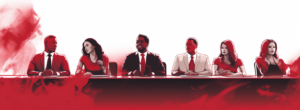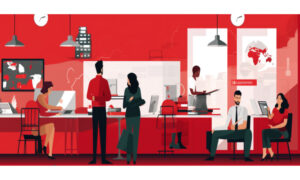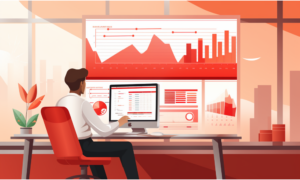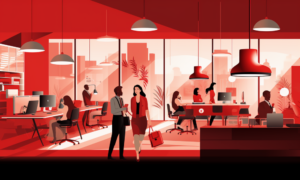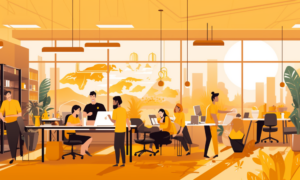Why HR and business leaders must move beyond disruption
- 5 Min Read
With headwinds to navigate, Terence Mauri, founder of Hack Future Lab, author and HRD Thought Leader, argues that the future belongs to HR and business leaders who move beyond disruption and reimagine relevancy.
- Author: Terence Mauri
- Date published: Nov 20, 2020
- Categories

From business to workforce disruption, HR and business leaders are going through turbulent times, but is enough being done to scale agile, resilient, and sustainable futures?
Ernest Hemingway wrote that change arrives in two ways – gradually and then suddenly. Change is happening here and now, driven by powerful AI that is already available – and it will eat incumbents for lunch if leaders fail to harness the power of innovation.
Behind the scenes, digital superpower companies such as Amazon, Google, and Microsoft have already re-engineered their business models and entire operating models around software, data, and AI to power a completely new breed of organization. With so many unknowns, how can companies, individuals, and society as a whole win?
In addressing this conundrum, I propose three imperatives for HR and business leaders to get started.
Master the new logic of competition
HR and business leaders must first master the new logic of competition. The 20th century was about scaling efficiency and doing things right, rather than doing the right things. The winners of tomorrow will scale intelligence, with the race to reskill and upskill being a top leadership priority. I call it ROI. Not return on investment, but return on intelligence and return on imagination.
Every organization says it wants to outpace disruption with capability, which requires the cultivation of a learning mindset at both the individual and organizational level, and another look at goals and the setting aside of both time and financial investment for learning. Today, just one in three HR leaders say they are investing in future learning, workforce upskilling, and reskilling as part of their strategy for the future of work.
Data aggregators such as Humu can help quantify the impact of emerging technologies on existing jobs, and matching skills from one job family to another to identify transferable skills. Further, the use of digital twins (or “mirror worlds”) and scenario modeling is on the rise to support workforce strategy design and planning. By visualizing scenarios, companies can bring to life the implications of choices on the bottom line and on the workforce.
Reimagine relevancy
Is today’s approach to work sustainable? The global pandemic has turned our working world upside down and accelerated disruption, from the blurring of industry lines and economic and geopolitical uncertainty, to disruptive technologies such as AI and automation and the shrinking of company, product, and even job lifespans.
Mental retooling needs to happen throughout the organization. It’s now no longer just about return on investment. It’s about return on intelligence. Royal Dutch Shell, for example, recently announced it is expanding an online program to teach AI skills. So far, 2,000 of its 82,000 employees have expressed interest or have been approached to participate.
The online courses are offered by learning platform Udacity, which has rolled out an ‘AI leadership program’ to help leaders reinvent how their organizations operate and compete.
Don’t go it alone: co-create for trust
Change used to happen as a breeze. Now it feels like a category five typhoon. Hack Future Lab’s research shows this isn’t very surprising, considering most leaders (93%) expect technology to continue as a primary business disruptor, followed by rising customer expectations (87%) and industry consolidation (80%).
As disruption accelerates and business models decay at a faster rate, leaders are tested in terms of both business continuity and organizational resilience: they must stop, flip the switch, turn on the lights and see and ask what’s up ahead – without fear or concern. At this time of unrelenting change, companies may find themselves alternating between four distinct phases depending on the course of the pandemic:
- Recover revenue
- Rebuild operations
- Rethink the organization
- Move from ‘doing digital’ to ‘being digital.’
Hack Future Lab research shows that the best business and HR leaders place trust at the heart of their decisions. Some of the most trusted brands such as Netflix, Amazon and Google listen and use data and insights to understand their employees, colleagues and customers’ pain points. They take action to improve individuals’ futures while enhancing their present-day experience.
Hack Future Lab’s research shows that organizations that lead with trust are more energizing to work for and more resilient in the face of adversity. Now, it’s the people delivering the experience who are driving the advantage — and the differentiator for them, too, is trust
Go beyond disruption
There will be winners and losers in the race to win the future. With so many unknowns, how can leaders turn adversity into advantage? Now is not the time to adopt a ‘wait and see’ strategy. As agents of change, it’s time for leaders to rip up the rulebook on leadership and move beyond disruption.


